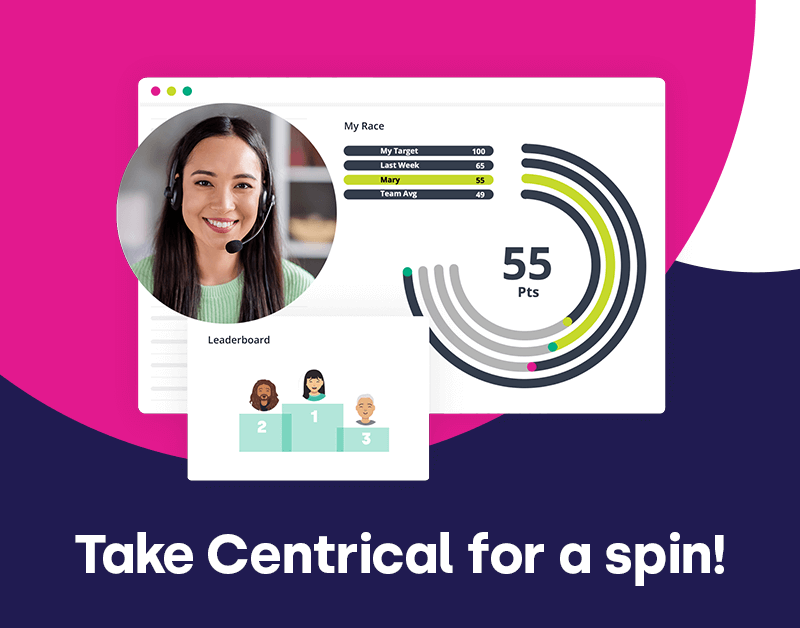How To Increase Employee Productivity In The Workplace
63,700,000 results. That’s what you get when you search “How to increase employee productivity in the workplace”. And not for nothing – improving productivity is a key challenge that keeps business leaders at all levels up at night. In fact, so much has been written on the subject that the internet is polluted with regurgitated content. So instead of “X tips to increase employee productivity in the workplace”, I’d like to propose a different way of looking at productivity, engagement, and performance.
Different strokes for different folks
Consider the song “Hallelujah” by Leonard Cohen. Cohen said to Bob Dylan once that it took him two years to write the song. Led Zeppelin, on the other hand, recorded their album “Led Zeppelin” in 36 hours. According to Jimmy Page, “It took 36 hours spread out over several weeks.” He thinks it was recorded in 36 hours because they paid for recording time of 36 hours.
So it begs the question – who was more productive?
Human beings are wired differently so consider measuring productivity per the people and/or the task. That’s why it’s important to first define what is it we’re trying to improve, and then how do we measure it. Leonard’s song had to “grow” over two years. He shortened the song from 80 choruses down to 19. He took his time, perfecting the song and turning it to the iconic masterpiece it is today. Likewise, Led Zep, knowing they paid for 36 hours, came prepared in order to maximize their use of studio time. Your “Leonard Cohen”s and “Jimmy page”s require a different set of KPIs, this is where workforce segmentation and multi-KPI exposure comes in handy.
Only now is real
When done correctly, real time exposure to performance vs. goals enables employees to assess, calibrate and engage in work. Knowing or seeing where you are in relation to where you need to get or where the others are has a strong psychological effect. Much like car racing – people don’t go to the Daytona 500 to watch a piece of metal reach 190mph. The excitement lies in the race. The Adrenaline rush that we feel watching a race unfold, the mechanical marvels and the humans who drive them, the limits they cross and the boundaries that they push through. It’s similar at work – seeing your performance in real time, compared to benchmarks, goals and colleague has a double benefit: first, knowing where you are lets you course- correct when you stray from the right track. Second, watching the results on the board drives engagement and excitement just like looking at a NASCAR race.
Beyond the annual performance review
Feedback is providing information regarding a person’s performance of a task (not micromanagement). It can be instructional, motivational or both. When given in real time, instructional feedback allows for a course-correction and more agile performance, resulting in higher effectiveness as well as job satisfaction. If I am making a mistake, or having a hard time completing a task, and you come and say, “Hey buddy, you are on the wrong path, try XYZ” – most likely you prevented me from spiraling down into a professional crisis and, by helping me correct my path, made me feel better and more optimistic about what I’m doing. The emotional ROI of this is invaluable.
Teach a man to fish
As the old saying goes, learn and you’ll never be hungry. We’re strong believers in the maxim “you learn, you earn” – training leads to skill enhancement, which in turn, leads to increased efficiency, which ultimately can take productivity to the next level.
Provide your employees with the exact knowledge they need, when they need it and they will thank you in productivity.
Games to motivate and inspire engagement
While all employees look for good management, career prospects and financial rewards, enterprises have gone crazy trying to retain talent with perks like a slide that connects two floors of the workplace (Mind Candy) or free yoga (Airbnb). However, there might be a simpler way: turn everyday tasks into interesting events. If you feel there’s a mission, or a competition or challenge, you’re more likely to engage in it with interest and motivation. Games give you instant feedback and ample opportunities for an immediate sense of intrinsic recognition- a Cornell research suggests that immediate rewards promote intrinsic motivation. In one study, participants completed a task in which they spotted the difference between two images. Some participants expected to receive an immediate bonus upon task completion, while others expected to receive the same bonus in a month. The former outperformed the latter by almost 20%.
So to recap, know that sometimes growth is happening below the surface, real time exposure to goals and status is super effective in increasing productivity. Provide actionable feedback to help employees power through sticking points, give them access to the knowledge they need when they need it and motivate them with challenges, games and competitions. It boils down to having the goals, the knowledge and the feedback in order for us to outperform ourselves – which results in what most people on the planet would describe as a highly satisfying feeling – the kind that almost makes you stand up and sing hallelujah.
About Centrical
Centrical is an Employee-Centric Performance Management Platform – the “fitness tracker” for the Connected Workforce of the Future. Centrical empowers employees to boost their work performance through hyper-personalised goals, real time tracking and data-driven feedback and coaching. Deployed with the world’s leading organizations Centrical helps managers drive up employee value day by day. To find out how Centrical can help transform your organization go to www.centrical.com or book a live demo.
Engage and motivate your frontline teams
Improve performance with an AI-powered digital coach
Deliver world class CX with dynamic, actionable quality evaluations
Boost performance with personalized, actionable goals
Nurture employee success with the power of AI
Listen and respond to your frontline, continuously
Drive productivity with performance-driven learning that sticks
Drive agent efficiency, deliver client results
Keep tech teams motivated and proficient on products and services while exceeding targets
Maintain compliance while building customer happiness and loyalty
Enlighten energy teams to boost engagement
Engage, develop, and retain your agents while driving better CX
Improve the employee experience for your reservations and service desk agents



 Madeleine Freind
Madeleine Freind
 Natalie Roth
Natalie Roth Linat Mart
Linat Mart












 Doron Neumann
Doron Neumann Gal Rimon
Gal Rimon Daphne Saragosti
Daphne Saragosti Ella Davidson
Ella Davidson Ariel Herman
Ariel Herman Ronen Botzer
Ronen Botzer